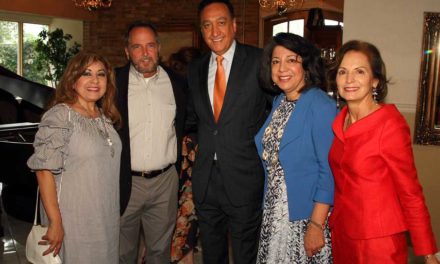In the vibrant tapestry of Latin music, few artists have left an indelible mark quite like George Lamond. Known as the King of Freestyle, Lamond’s career is a testament to the power of cultural fusion and the enduring appeal of Latin rhythms.
Born George Garcia in Washington, D.C., and raised in the Bronx, Lamond’s journey is a quintessentially Latin American story. His music reflects the rich, diverse influences that have shaped Latin culture, blending the pulsating beats of freestyle with the soulful strains of salsa and merengue.
Lamond burst onto the scene in the late ’80s with his hit single “Bad of the Heart,” a track that not only topped the charts but also became an anthem for freestyle enthusiasts. This genre, which fuses elements of electronic dance music with Latin sounds, found a passionate audience in the Latino communities of New York and beyond.
What sets Lamond apart is his unwavering commitment to his roots. While many artists have shifted styles to adapt to changing musical trends, Lamond has stayed true to the Latin essence of his music. His albums, including *The Hits and More* and *Entregate*, are rich with tracks that celebrate Latin love, passion, and resilience.
Recently, George Lamond expanded his talents further into acting. He was cast as Robert Rodriguez in the Broadway play *I Like It Like That* in New York, joining fellow Latin music star Judy Torres. The play, set in the Bronx during the 1970s, captures the spirit of Spanish Harlem as Latinos fought to preserve their culture and claim their rights in a changing America. Through this performance, Lamond not only entertains but brings to life the struggles, strength, and pride of the Latino community.
Lamond’s impact extends beyond his discography and now into theater. He’s a cultural icon, representing the spirit of Latin artists who have carved out a space in mainstream media without compromising their heritage. His concerts—and now his stage performances—are celebrations of Latin identity, bringing together fans from diverse backgrounds to dance, sing, and revel in the shared joy of music and cultural pride.
In a world where cultural representation is more important than ever, George Lamond stands as a beacon of Latin pride. His music and now his acting remind us of the beauty of our culture and the strength of our community. As we look to the future, artists like Lamond inspire the next generation to embrace their heritage and continue the legacy of Latin excellence in the arts.
For fans old and new, George Lamond is more than just an artist; he’s a symbol of the vibrant, unstoppable force of Latin culture. His melodies and performances echo our stories, our struggles, and our triumphs, making him a true legend in the world of Latin music.







